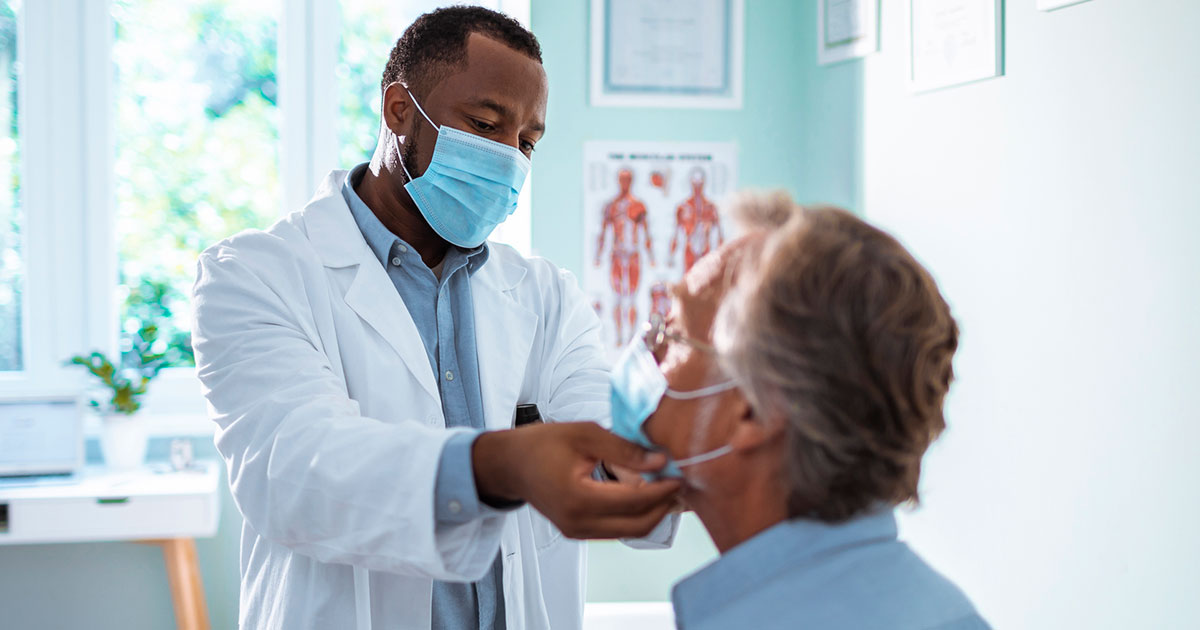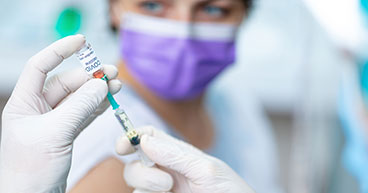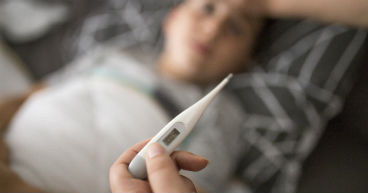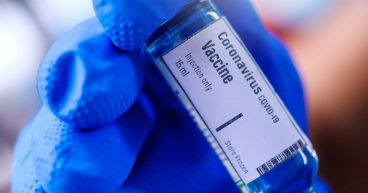
It turns out he was right, even if research into the virus only recently confirmed his suspicion.
“For me, there were specific concerns when the pandemic hit,” says Dr. Perre, Vice Chief of Staff at Cancer Treatment Centers of America® (CTCA), Philadelphia. “There was a lot of uncertainty, and we really didn’t know what to expect. But I knew it was going to have to change the way I convened with family and friends. We stopped going to church in person, and holidays like Thanksgiving and Christmas became very restricted in terms of who we exposed ourselves to.”
Dr. Perre’s concerns have been confirmed in a new study by doctors at Penn Medicine. The research indicates that, compared to those who have never been diagnosed with cancer, long-term cancer survivors are at higher risk of developing severe symptoms, being hospitalized or dying from COVID-19.
Previous concerns had focused mainly on cancer patients who have active disease or are in or just completed cancer treatment.
According to the research, of the patients Penn Medicine studied who had tested positive for COVID-19, those with active cancer and inactive cancer had higher rates of hospitalizations, intensive care unit admissions and mortality than those who had never had cancer. “While worse outcomes were more strongly associated with those with active cancer, patients in remission also faced an overall increased risk of more severe disease compared to COVID-19 patients without cancer,” Penn Medicine says in a news release.
More than immune issues
Cancer and treatments may take a serious toll on the body’s immune system. For instance:
- Cancer cells may find ways to de-activate immune cells to evade detection.
- Fighting cancer may strain and overwhelm the immune system.
- Some blood cancers, such as leukemia or lymphoma, often disrupt the production of healthy immune cells.
- Chemotherapy may kill or damage immune cells, raising the risk of infection.
- Cancer cells may metastasize in bone, affecting how new immune cells are produced.
“In general, we know that the immune system in cancer patients takes time to recover after treatment,” Dr. Perre says. “And we know that it may take up to a year after taking chemotherapy for immune function to approach normal levels.”
But increased risk for severe COVID-19 symptoms in cancer patients is linked to more than just immune suppression. Other factors that may increase risk of hospitalization, serious symptoms or death from COVID-19 include conditions that may have contributed to the patient developing cancer in the first place. For example:
Age: The average age of a patient diagnosed with cancer is 67.
Obesity: Excess weight is a risk factor for several diseases, including cancer and diabetes.
Smoking: Poor lung function from smoking may increase the risk of breathing difficulties from COVID-19 infections.
“Studies have shown that cancer survivors had a lot of the common risk factors that are linked to people who develop more significant disease from COVID-19,” Dr. Perre says. “The comorbidities that put people at higher risk for COVID are the same as those found in many cancer patients.”
The residual effects of some cancer treatments may also be a factor in cancer survivors’ higher risks of COVID-19 symptoms. For instance, patients who had surgery to remove lymph nodes or a portion of a lung may be at a higher risk of infection. In Dr. Perre’s case, a chemotherapy drug he took as part of a combination drug treatment called ABVD (doxorubicin, bleomycin, vinblastine and dacarbazine) contributed to lung damage.
“For me in particular, I was fearful because bleomycin caused some damage to my lung function,” he says. “There’s a process called bleomycin toxicity, where some of the damage that was caused initially by the chemotherapy may be activated under high-dose oxygen. For me, it was terrifying because I thought if I get COVID-19 and I needed high-flow oxygen, would I be at high risk of lung damage caused by the bleomycin?”
Staying safe
Dr. Perre says the message to cancer survivors is clear: No matter how long ago you had active cancer, were in treatment or were told your scans showed no evidence of disease, it’s important to take steps to stay safe during the pandemic.
“I don’t know that we can ever let our guard down,” Dr. Perre says. “There are things we have to do from this point forward. When the vaccine becomes available, take it. Continue to mask up. There’s data that shows masking reduces your exposure. Also try to limit your exposure. We really don’t know how long the pandemic is going to last.”
Learn more about how cancer treatments affect the immune system.



